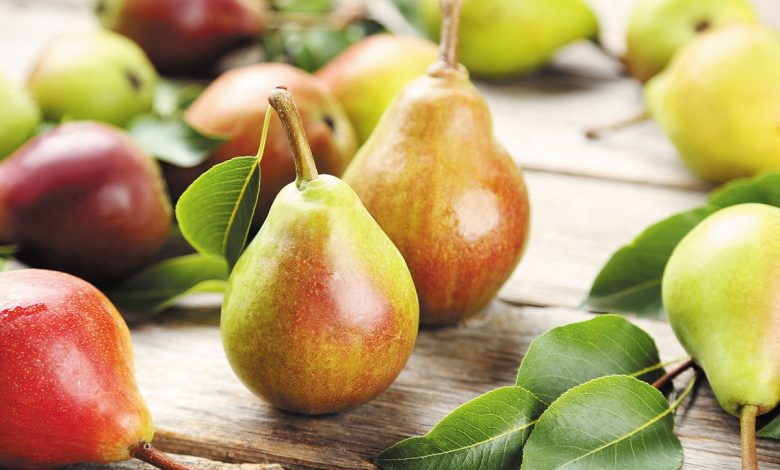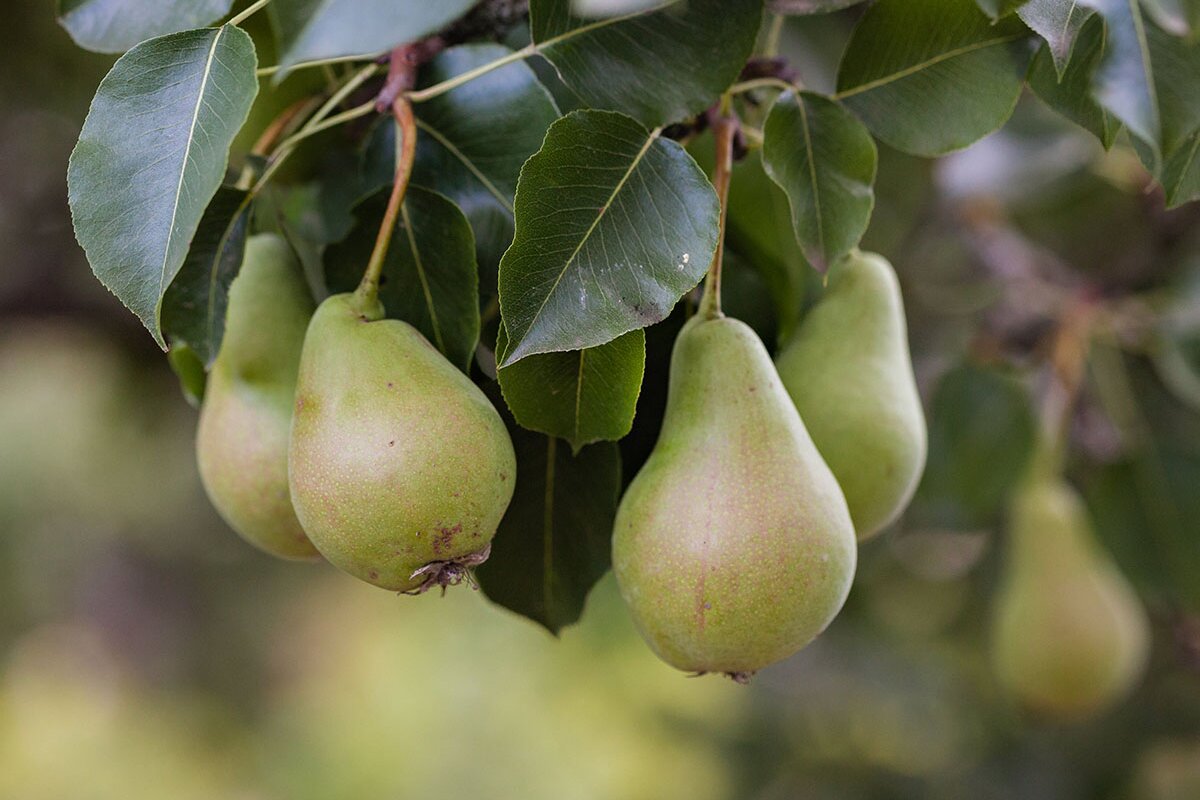Pear Fruit Benefits: Everything You Need To Know About Pear

Pear Fruit Benefits: Here’s an overview of pears, including their characteristics, nutritional value, and health benefits:
Characteristics:
Botanical Name: Pyrus
Family: Rosaceae
Origin: Native to Europe, North Africa, and Asia
Varieties: Bartlett, Anjou, Bosc, Comice, Asian pears, and more
Season: Typically harvested in late summer through fall

Physical Description:
Shape: Pears generally have a distinctive bell shape, although some varieties are more rounded.
Skin: The skin color can vary from green to yellow, red, brown, or a combination of these colors.
Flesh: The flesh is typically white to creamy and has a grainy, juicy texture.
Taste: Pears are sweet with a mild, aromatic flavor.
Nutritional Value:
Pears are packed with essential nutrients while being low in calories. A medium-sized pear (about 178 grams) contains:
Calories: 101
Carbohydrates: 27 grams
Fiber: 6 grams (24% of the daily recommended intake)
Sugars: 17 grams
Protein: 1 gram
Fat: 0.3 grams
Vitamins and Minerals:
Vitamin C: 12% of the daily value (DV)
Vitamin K: 6% of the DV
Potassium: 5% of the DV
Copper: 16% of the DV
Pear Fruit Benefits: Health Benefits:
1. Rich in Fiber
Pears are an excellent source of dietary fiber, which aids in digestion, helps prevent constipation, and promotes gut health.
2. Antioxidant Properties
Pears contain antioxidants like vitamin C and copper, which protect cells from oxidative damage and reduce the risk of chronic diseases.
3. Supports Heart Health
The fiber in pears helps lower cholesterol levels, and potassium helps regulate blood pressure, both of which are beneficial for heart health.
4. Boosts Immune System
Vitamin C in pears enhances immune function and helps the body fight off infections.
5. Weight Management
Pears are low in calories and high in water content, making them a filling and low-calorie snack option that can aid in weight management.
6. Anti-inflammatory Effects
Pears contain flavonoids and other phytonutrients with anti-inflammatory properties, which can help reduce inflammation and lower the risk of chronic diseases.
7. Promotes Skin Health
The antioxidants and vitamins in pears contribute to healthy skin by supporting collagen production and protecting against skin damage.
8. Bone Health
Pears contain boron, a mineral that helps the body retain calcium, supporting bone health and reducing the risk of osteoporosis.

Pear Fruit Benefits
Uses:
Culinary: Pears can be eaten fresh, added to salads, baked into desserts, or cooked in savory dishes.
Juices and Smoothies: Pears can be blended into juices and smoothies for a nutritious drink.
Preserves and Jams: Pears can be used to make jams, jellies, and preserves.
Pear Fruit Benefits
In conclusion, pears are a versatile and nutritious fruit with numerous health benefits. Incorporating them into your diet can help improve digestion, support heart health, boost immunity, and contribute to overall well-being.
Also Read:
Fruits For Weight Lose: The 6 Amazing Fruits That Help You Lose weight
Slimming Fruits; 10 Miraculous Fruits For Weight loss
Sugar free Fruits: Know Sugar free And Dietary Fruits
Health Benefits Of Raisins: 16 Benefits Of This Dry Fruit For Body Health




